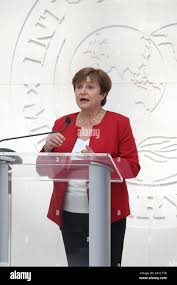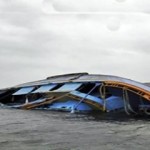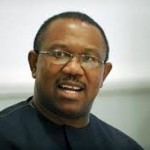There’s So Much Africa Can Do For Africa – Georgieva
African News, Latest Headlines, News Around Africa Thursday, October 20th, 2022
(AFRICAN EXAMINER) – Managing Director of International Monetary Fund (IMF), Ms. Kristalina Georgieva has said that there is so much the African continent can do for its member states just by removing obstacles to growth on the basis of African integration.
Ms. Georgieva noted that it is so important that Africa does not waiver from the big, big policy decisions like the Continental Free Trade Agreement to implement them as envisioned.
She also observed that of all regions in the world, Africa finds itself in the most precarious position because, according to her, the continent was already affected by food insecurity due to climate events.
“We sometimes forget that the Horn of Africa and the Sahel were experiencing food insecurity and for Somalia, there was already concern that it could become very dramatic even before the war in Ukraine”, the IMF boss said at a press conference.
She further explained that Africa is unfortunately where we were as a global community a bit slow to provide the necessary vaccination support to fight COVID and, as a result, we have the scarring from COVID in many countries more severe.
“Just think what it means for children that are out of school for two years to then try to resume classes. Many drop out, especially girls, and that can have implications for quite some time.
“I met with a number of presidents and finance ministers from Africa to say, let us work together to come out of this tough time with an even stronger position.
“My mantra has always been, what is the strength of Africa? The young population. How can you make use of this strength? Invest in young people, invest in digital connectivity, invest in competitiveness for the future”, she added.
Ms. Georgieva said from what her organization observed in the COVID crisis, countries that had strong fundamentals, like people with strong immune systems, were able to withstand the shock much better than others.
She therefore urged African countries to stick to prudent macroeconomic policies, adding that low-income countries that are or near debt distress to act early and not wait until the worst happen to them.
“Use the support system that the multilateral banks and the IMF are providing for you. And we are mobilizing very firmly, I mentioned the Food Shock Window, but we are also moving in many countries with upper credit tranche programmes”, she stressed.
The IMF boss also pointed out that there are positive stories to tell as well, adding many countries in Africa over the last decade have built strong fundamentals.
“They have worked very hard to increase their tax-to-GDP ratio, so they have the financial capacity to support their economies and their people. And now they are faced with the need of the international community to stand by them”, further explained.
While speaking on the issues trending at the global level, she also stressed the need to act now to safeguard financial stability amidst rising financial sector risks, macro prudential policies.
“We need to be more vigilant and address proactively pockets of vulnerability. We also must support vulnerable emerging markets and developing countries. It is tough for everybody, but it is even tougher for countries that are now being hit by a stronger dollar, high borrowing costs, capital outflows, a triple blow that is particularly heavy for countries that are under a high level of debt.
“So, zeroing in on that and this is already happening this week, especially for low-income countries where over 60 percent are at or near debt distress, is paramount. We need stronger efforts to confront food insecurity. 345 million people are acutely food insecure. What it means is that there are children, women, and men who are at risk of dying because of hunger.
“We are also taking a look into the future. The future is not going to wait. We need transformational reforms to address climate change, to make digitalization work for people in the economy, and to address inequality. So, we have to do it not only acting with a sense of urgency now, but we also have to do it acting together.
“We are working with our 190 members on many of these issues. Our economic analysis is front and center to help countries navigate this complex environment and avoid policy mistakes. Our lending is aligned with our countercyclical role”, she further explained.
Related Posts
Short URL: https://www.africanexaminer.com/?p=82212





















